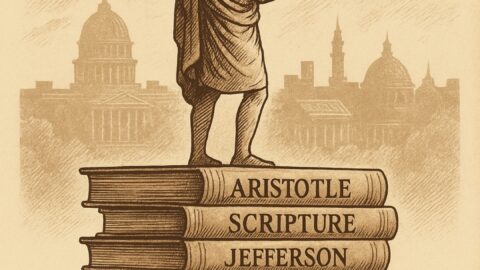The Virtue of Disobedience: A Historical and Philosophical Perspective
“Disobedience, in the eyes of any one who has read history, is man’s original virtue. It is through disobedience that progress has been made, through disobedience and through rebellion.” — Oscar Wilde
Oscar Wilde’s assertion that disobedience is “man’s original virtue” highlights the paradoxical truth that societal progress often requires rebellion against unjust norms, systems, or authority. This principle resonates deeply with the founding of the United States in 1776 and continues to echo through history as cycles of rebellion challenge tyranny and renew the spirit of liberty.
America’s Founding and Disobedience
The United States was born out of rebellion against British imperial rule. The Founding Fathers viewed oppressive governance as antithetical to human rights and freedom. Their disobedience to British authority, codified in the Declaration of Independence, was grounded in several key principles:
- Natural Rights: The belief that all people are endowed with inalienable rights to life, liberty, and the pursuit of happiness.
- Opposition to Tyranny: The refusal to submit to a government that violated these natural rights through taxation without representation, militarization, and arbitrary laws.
- Self-Determination: The demand for governance by the consent of the governed, as opposed to rule by distant monarchs.
Key Acts of Disobedience Leading to the Revolution:
- The Boston Tea Party: A direct protest against taxation without representation.
- The Continental Congress: Organized resistance to British laws and policies.
- The Revolutionary War: Armed rebellion to secure independence.
Thomas Jefferson on Resistance
Thomas Jefferson, a principal architect of American liberty, acknowledged that disobedience and resistance are essential for preserving freedom:
- Checks on Power: In his writings, Jefferson warned against the centralization of power, fearing that unchecked government authority would lead to the same oppression that drove the colonies to revolt.
- The Spirit of Resistance: Jefferson argued that periodic rebellion serves as a corrective force, reminding rulers that power resides with the people.
- “What country can preserve its liberties if their rulers are not warned from time to time that their people preserve the spirit of resistance?”
- The Tree of Liberty: His famous metaphor illustrates the necessity of sacrifice in maintaining freedom:
- “The tree of liberty must be refreshed from time to time with the blood of patriots and tyrants.”
Disobedience as a Catalyst for Progress
Throughout history, acts of rebellion have often been the driving force behind societal advancement:
- Civil Rights Movement (1960s): Disobedience against segregation laws led to the dismantling of institutional racism.
- Labor Rights Movements: Strikes and protests against exploitative working conditions led to better wages and labor protections.
History Repeats Itself: The Cycle of Rebellion
“When all government, domestic andforeign, in little as in great things, shall be drawn to Washington as the center of all power, it will render powerless the checks provided of one government on another, and will become as venal and oppressive as the government from which we separated.” — (Thomas Jefferson, Writings of Thomas Jefferson, Bergh 15:331. [1821])
Jefferson and Wilde’s insights reflect a broader historical truth:
- The Cycle of Power and Oppression: Governments and institutions tend to centralize power over time, often leading to abuses.
- The Role of Rebellion: When oppressive systems reach a tipping point, resistance emerges, challenging and reshaping the status quo.
- Renewal of Liberty: Each cycle of disobedience refreshes the ideals of freedom, justice, and equality.
Modern Relevance
In contemporary times, the spirit of disobedience manifests in movements resisting corruption, systemic inequality, and authoritarianism:
- Protests against government overreach, surveillance, and suppression of speech.
- Grassroots movements advocating for climate action and social justice.
- Calls for decentralization of power to return autonomy to individuals and local communities.
Albert Einstein’s Warning: Blind obedience to authority stifles truth and progress. It is only through questioning and resisting unjust authority that individuals and societies can evolve.
The Balance Between Disobedience and Order
While disobedience can be virtuous, it must be balanced with wisdom and purpose:
- Constructive Rebellion: Effective disobedience challenges injustice while building pathways to positive change.
- Avoiding Anarchy: Disobedience must aim to improve systems, not dismantle them recklessly.
Conclusion
Disobedience, when motivated by virtue and justice, is a powerful force for change. As demonstrated in America’s founding and reaffirmed by Jefferson’s writings, it is essential for preserving liberty and resisting tyranny. History teaches us that progress requires the courage to question authority, challenge oppressive systems, and embrace the risk of rebellion in pursuit of a better future.
Key Takeaway:
“The spirit of resistance is the foundation of freedom. Without it, liberty cannot survive.”







